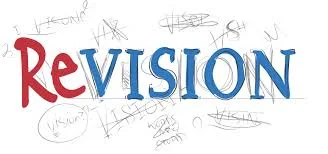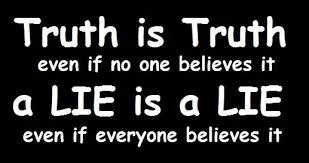I checked the web to see what writing tips were out there. I found a ton. But they were all pretty much the same.
Here are the 10 I found at Forbes.com:
1. Put metaphors on the back burner. 2. Use simple, concrete language. 3. Omit needles words. 4. Stay active. 5. Use English (they mean, don’t use jargon). 6. Curb your enthusiasm (they mean, don’t use exclamation points). 7. Match your subject to your pronoun and verb. 8. Limit your use of adverbs. 9. Know when to use “that” and “which.” 10. Don’t confuse “affect” and “effect.”
Seriously? That’s all you got? (see the list for yourself: http://www.forbes.com/sites/susanadams/2015/04/27/10-tips-for-better-business-writing-3/#a166b3d5074a)
I also found some tips at the Harvard Business Review: 1. Think before you write (they mean, “know what YOU want to say before you write”). 2. Cut the fat. 3. Avoid jargon and $10 words. 4. Read what you write (they mean, proofread). 5. Practice every day (as though we could choose to stop writing at work???). See their list: (https://hbr.org/2014/11/how-to-improve-your-business-writing).
If these tips could improve our writing, we’d all be great writers by now because these are versions of the typical advice we’ve heard about writing forever. But is that all there is? Are these truly the main things to know about writing? Even as just “quick tips,” how useful are they, really?....
What came first, the thought or the need to think it?
While you wonder about this question, let me continue…I’ll soon tell my answer and why I think this riddle should matter to writers and writing teachers.
In the “Faculty Robing Room” yesterday at my college’s 150th-anniversary winter graduation ceremonies, I chatted with some colleagues—smart, excellent writers/writing teachers—about whether students in a freshman writing class produce in their writing assignments imaginative, energetic content.
“No, not so much”…their answer didn’t surprise me. What did make me gasp a little was how they conceived of CONTENT....
If you like puzzles, you should like playing with sentences…as it turns out, “writing” is a lot like playing with LEGOs. All it takes is determination to have fun and knowledge of a few phrases that allow us to see words and clusters of words as our puzzle pieces, which can be snapped together to create just about anything we can imagine. Having fun putting sentences together will make your writing a little better....
Sitting in a recent meeting of college writing teachers, who were grumbling because they couldn’t get their students to earnestly revise their writing assignments, I realized why re-vision is often nearly impossible for students and how to solve the problem....
Scene 1: I climb onto my soapbox:
I keep hearing that we live in a post-truth world.
This belief implies some disturbing assumptions....
Welcome to a new feature on this blog. Every few months, I'll post this offer to answer writing questions you might have. Just post a question in the "comments" section, and I'll answer. It may even be "the right answer," thought-provoking, or...useful.
The writing doctor awaits your QUERIES....
Writing classes aren’t working so well. I invite you to watch a short video from CNBC, narrated by Kelley Holland, “Why new employees can’t write and why employers are mad.” (http://video.cnbc.com/gallery/?video=3000217064)
She points out that we’re doing more writing in the workplace than we did 30-40 years ago, so writing skills have become even more important. But employers see that new employees lack strong writing skills. She points out that even graduates from the nation’s top business schools often lack necessary writing skills.
I’ve seen this to be true in my 30 years of writing consulting for the public and private sectors, working with the best and brightest graduates from programs in public policy, engineering, and business, etc.
Ms. Holland suggests one cause for this problem: we focus more on math and science in schools to the exclusion of writing classes. This may be true. But I believe we teach writing ineffectively. We teach students to write essays. Writing essays does not develop the kind of critical-thinking and writing concepts and techniques students will need on the job.
THE PROBLEM?
In high school and college, when students are in a writing class, most likely they’re writing essays. Most likely they’re taught how to write primarily by writing essays. Perhaps essays have their place in the curriculum. But essays should be excluded from most writing classes and saved for advanced classes that seek to teach students expressive writing and eloquence.
The essay is a bad way to teach writing for most beginning and intermediate writing classes…from first grade through college. Here’s why…..
As a writer you face two big questions:
· What should I say?
· How should I say it?
And workplace writers are further admonished to keep it simple (stupid): K.I.S.S. But how?
If you have a simple message—Be at the meeting at 2PM, Suite A—KISS is pretty easy. But as the message becomes more complex, the more complex it becomes to keep the message simple.
If you’re stuck, intimidated, frustrated, or confused by trying to figure out what you should say and how you should say it, all while keeping it simple, this blog post is for YOU! You should love to write about as much as you love to talk, right?
(1) You need to gain a little insight into how readers read.
(2) You need to understand how writing communicates.
Knowing these two things will help you take on any writing task with confidence, while being a good K.I.S.S.er…..








